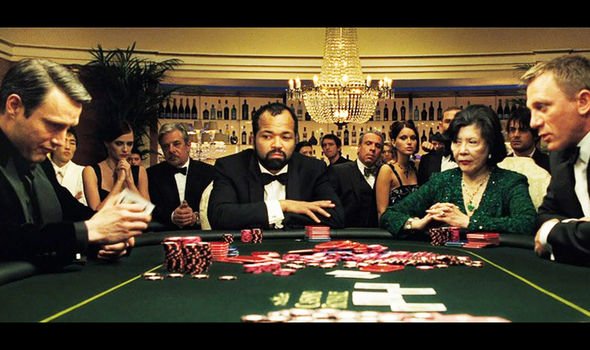7 Card Poker: A Comprehensive Guide to Winning Strategies
Poker is a game that has captured the hearts of gamblers and enthusiasts worldwide for centuries. With its numerous variations, one of the most popular and competitive versions is 7 Card oker. This classic card game adds an exciting twist to traditional poker, requiring players to utilize a combination of strategy, skill, and luck to emerge victorious. Whether you’re a seasoned player or a newcomer, mastering 7 Card Poker can lead to thrilling victories and an enriched understanding of the game.
What is 7 Card Poker?
7 Card Poker, often referred to as Seven-Card Stud, is a popular variant of poker played without community cards. Players are dealt seven cards individually, with three face-down cards (the “hole” cards) and four face-up cards. The game proceeds through a series of betting rounds, and players must use the best combination of five cards from their seven to create a hand. The goal is to have the highest-ranking hand at the end of the game, but it’s not just about luck—it’s about strategy, decision-making, and reading your opponents.
Understanding the Basics of 7 Card Poker
Before diving into strategies, it’s important to understand the basic rules and structure of the game.
-
The Deal: Each player is dealt two private cards (known as the hole cards) face down and one card face up.
-
The Betting Rounds: There are five betting rounds in 7 Car Poker:
-
Third Street: After the initial cards are dealt, players start betting based on their face-up card.
-
Fourth Street: Another face-up card is dealt, followed by a round of betting.
-
Fifth Street: A third face-up card is dealt, and more betting takes place.
-
Sixth Street: The fourth and final face-up card is dealt, and players bet once again.
-
Seventh Street: The last card, known as the “river” card, is dealt face down, and a final betting round occurs.
-
-
Showdown: After the final betting round, players reveal their hands. The best hand wins the pot.
7 Card Poker Hand Rankings
Like all poker games, 7 Card Poker relies on the standard poker hand rankings, where the highest combination of cards wins. Here are the rankings from highest to lowest:
-
Royal Flush: A, K, Q, J, 10, all of the same suit.
-
Straight Flush: Five consecutive cards of the same suit.
-
Four of a Kind: Four cards of the same rank.
-
Full House: Three of a kind and a pair.
-
Flush: Five cards of the same suit, not in sequence.
-
Straight: Five consecutive cards of any suit.
-
Three of a Kind: Three cards of the same rank.
-
Two Pair: Two sets of pairs.
-
One Pair: Two cards of the same rank.
-
High Card: The highest card if no other hand is made.
Essential Strategies for Winning at 7 Card Poker
While 7 Card Poker is partially a game of chance, it heavily relies on strategy. Here are a few key tips to enhance your gameplay and increase your chances of winning:
-
Starting Hand Selection: One of the most crucial elements in 7 Car Poker is selecting which hands to play. If your hole cards are weak, it’s often best to fold and wait for a stronger hand. Hands with pairs, high cards (Ace, King, Queen), or suited connectors are generally strong starting points.
-
Observe Your Opponents: Reading your opponents’ betting patterns, behavior, and reactions is a crucial part of 7 CardPoker. Are they betting aggressively or playing conservatively? Are they bluffing or playing tight? Use this information to adjust your strategy and make better decisions during the betting rounds.
-
Position Is Key: Like many poker games, position in 7 CardPoker is vital. Being one of the last players to act in a betting round allows you to have more information about your opponents’ hands, which can help you make informed decisions. Players who act early are in a more vulnerable position, so be cautious when betting from an early spot.
-
Manage Your Betting: Betting in moderation is a key strategy in 7 Card Poker. Avoid making massive bets early on if you have a marginal hand, and be cautious of overcommitting. It’s important to manage your chip stack and avoid playing recklessly. On the other hand, if you have a strong hand, don’t be afraid to raise and force your opponents into tough decisions.
-
Bluffing: Bluffing is a cornerstone of poker strategy, and 7 Card Poker is no exception. Bluffing can help you win pots even when you don’t have the best hand. However, bluffing should be used sparingly, as experienced players can often spot a bluff. Only bluff when the situation is right, such as when you have a credible story to tell based on the cards you’ve revealed.
-
Stay Calm and Stay Focused: Poker is a game of ups and downs, and staying emotionally composed is critical. Avoid “tilting”—a term for letting frustration or emotions affect your gameplay. Stay focused, make logical decisions, and don’t let bad hands or losses derail your strategy.
Why 7 Card Poker Is So Popular
The charm of 7 Card Poker lies in its depth. It combines the complexity of traditional poker with the excitement of multiple betting rounds, strategic decisions, and the ability to create a wide variety of hand combinations. The absence of community cards means that players rely heavily on their own hand and the cards they can deduce from the betting patterns of their opponents. This creates a rich environment for skillful players to excel and outwit their competition.
Conclusion
7 Card Poker is a thrilling and dynamic poker variant that combines skill, strategy, and psychology. By understanding the rules, hand rankings, and implementing smart strategies, you can dramatically increase your chances of success. Whether you’re a casual player or a seasoned pro, mastering 7 Card Poker will not only improve your gameplay but also provide hours of entertainment and excitement at the table. So, next time you sit down for a game, remember: it’s not just about the cards you’re dealt, but how you play them



